Deciphering the enigma of strategy
implementation
22 JANUARY 2019 9:23 AM
The current way of operationalizing new hospitality assets hurts corporate strategic KPIs. This article illustrates the
connection between tactical and operational activities with strategic objectives of owners and operators.
Strategic hospitality key performance indicators are hotel owner return on investment and hotel operator system growth. The latter has critical impact on
operator’s share price. Both KPIs are realized through the development of new hospitality assets. The overall objective of a new hospitality project is to bring
the asset online to start generating positive cashflows from operation and deliver value for shareholders.
The additional market effect of a successful opening is strategically significant for both owners and operators. Owners prove their mettle as effective
developers, enabling them to secure funding for new projects. Operators prove their effectiveness as a brand and/or management company, attracting
potential developers of new projects.
In addition, a successful opening and operation of the new hospitality asset contributes to both owner and operator revenues and earnings that are critical to
further their expansion plans.
Unfortunately, most hospitality companies miss these opportunities when developing new hospitality assets, instead damaging their respective strategic KPIs,
revenues and reputations.
The two main negative effects for a new hospitality asset are:
Opening delays that impact owner’s ROI and operator’s cashflows.
Approving the wrong project for development undermines the owner’s ROI for the foreseeable future.
The negative word of mouth of both negative effects does reputational damage to the operator, undermining their potential of signing high-quality new owners
in numbers required for rapid growth.
This article illustrates how issues that are usually deemed to be tactical or operational in nature undermine the execution of corporate strategies on both
owners’ and operators’ ends, and negatively impact their respective strategic KPIs.
Dysfunctional lines of authority
Current lines of authority undermine effective integration of corporate strategy. Development of new hospitality assets
needs project teams to plan and execute activities in each phase and integrate efforts between all phases. This requires
clear lines of authority that jointly work towards simultaneous technical, operational and commercial readiness of the
new hospitality asset. Examples of current lines of authority that undermine integrated efforts towards opening
readiness include owner vs. operator, operator’s business development vs. operations, and the design & construction
project vs. pre-opening project phase.
Conflicting incentives
Current incentive structures undermine effective integration of corporate strategy across operator’s departments
because overall success is measured and rewarded differently for each of them. For instance, success is measured
differently for operator’s business development and operations. Development KPIs focus on the number of agreements
signed, without any KPI aspects for post-opening performance of the new hospitality asset vs. pro-forma. Operations
KPIs focus on top- and bottom-line results without influence on the pro-forma!
Disregarded mutual interdependence: Design, construction and pre-opening are mutually interdependent.
However, the pre-opening is often treated as “prelude” to operations and not as part of the overall hospitality
asset development project. This leads to non-integration of critical interdependencies, areas where the GM is
able to influence for successful operationalization.
Non-alignment of strategic objectives: The strategic objectives of owners and operators are not aligned.
Opinions
By Gert Noordzy and Oscar Hauptman
Copyright © 2008-2019 STR, Inc. Page 1 / 2
This article illustrates how issues that are usually deemed to be tactical or operational in nature undermine the execution of corporate strategies on both
owners’ and operators’ ends, and negatively impact their respective strategic KPIs.
Dysfunctional lines of authority
Current lines of authority undermine effective integration of corporate strategy. Development of new hospitality assets
needs project teams to plan and execute activities in each phase and integrate efforts between all phases. This requires
clear lines of authority that jointly work towards simultaneous technical, operational and commercial readiness of the
new hospitality asset. Examples of current lines of authority that undermine integrated efforts towards opening
readiness include owner vs. operator, operator’s business development vs. operations, and the design & construction
project vs. pre-opening project phase.
Conflicting incentives
Current incentive structures undermine effective integration of corporate strategy across operator’s departments
because overall success is measured and rewarded differently for each of them. For instance, success is measured
differently for operator’s business development and operations. Development KPIs focus on the number of agreements
signed, without any KPI aspects for post-opening performance of the new hospitality asset vs. pro-forma. Operations
KPIs focus on top- and bottom-line results without influence on the pro-forma!
Disregarded mutual interdependence: Design, construction and pre-opening are mutually interdependent.
However, the pre-opening is often treated as “prelude” to operations and not as part of the overall hospitality
asset development project. This leads to non-integration of critical interdependencies, areas where the GM is
able to influence for successful operationalization.
Non-alignment of strategic objectives: The strategic objectives of owners and operators are not aligned.
Owners focus on operationalization of the business case to generate positive cashflows from operations and
realize investment objectives (e.g. disposal of the asset). Operators focus on increasing hotel company value and
share price through system growth. Realization of owner investment objectives is generally less important to
operators, as they have no “skin in the game”.
Owner on-boarding: Owners are often depicted by operators as “the bad guys” who don’t listen and can’t be influenced. In reality, hotel company
development may not have clearly articulated what owners are getting themselves into by keeping the gist of the agreements vague and full of small
font clauses and requirements, spread across the 150 pages of a typical agreement. Ineffective owner on-boarding from the onset will negatively
impact the owner/operator relationship throughout the asset life cycle.
The curse of success
Signing deals creates buzz, and the stock markets react favourably to announcements of growth. The curse of success happens when the development
pipeline of a hotel company gets eventually overloaded with mediocre, riskier projects, because the growth rate is not sustainable with the capacity of the
hotel company’s resources and infrastructure to effectively deliver the new hotel projects to operations. The current perception seems to be: “we can do it in
current scale, so scaling up is easy!”
The way forward
In the context of the pipeline and competitive pressures, the keys to successful strategy implementation are:
effectuating the correct alignment of strategic objectives, lines of authority and incentives;
preparing a scale-up infra structure, including astute recruitment of talent, strategic use of external resources and training;
integrating and coordinating across authority lines; and
implementing portfolio, program and project management.
Portfolio is about doing the right projects. Project management is about doing the projects right. Doing the right projects right becomes more critical because
of the intended ambitious growth plans and fierce competition.
Gert Noordzy is a hotel opening specialist and organizational project management expert. He is managing director of Northside Consulting and member of the International Society of Hospitality
Consultants. Gert is the author of Project Management of Hotel Opening Processes. He can be reached at gert.noordzy@northside -consulting.com.
Oscar Hauptman is principal at Northside Consulting. He is an expert in project, program and innovation management, with a PhD in Management and Technology Innovation from Massachusetts
Institute of Technology. Oscar has taught as faculty member at Harvard Business School. He can be reached at oscar.hauptman@northside-consulting.com.
Northside Consulting is a boutique firm specializing in the tactical and strategic aspects of hotel opening processes.
The opinions expressed in this column do not necessarily reflect the opinions of Hotel News Now or its parent company, STR and its affiliated companies. Bloggers published on this site are given the
freedom to express views that may be controversial, but our goal is to provoke thought and constructive discussion within our reader community. Please feel free to comment or contact an editor with
any questions or concerns.
Copyright © 2008-2019 STR, Inc. Page 2 / 2

